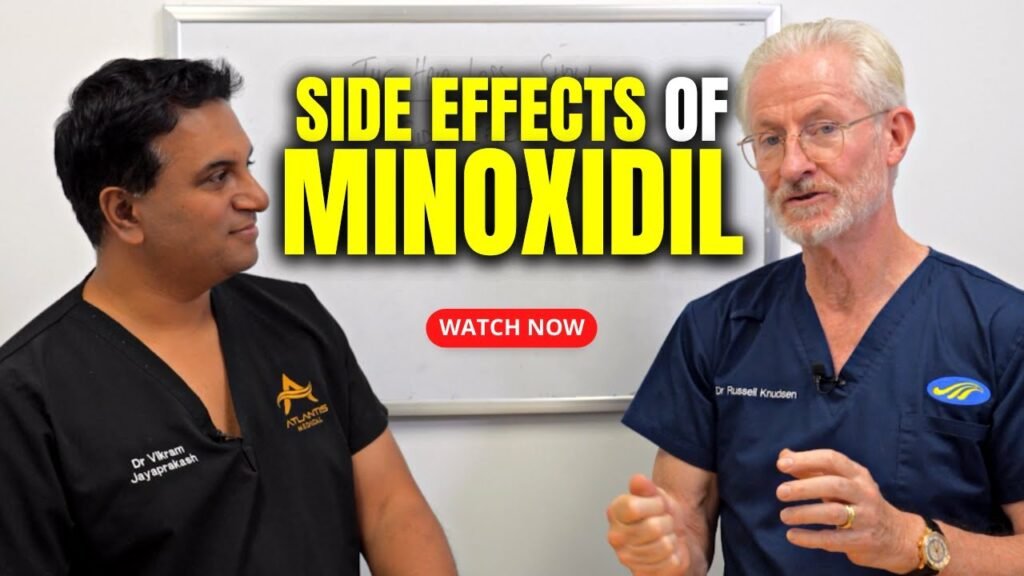Understanding Minoxidil: What It Is and How It Works
Minoxidil is a popular topical treatment widely recognized for its efficacy in combating hair loss. Originally developed as an oral medication for high blood pressure, minoxidil was found to have an interesting side effect: it promoted hair growth. This discovery led to the development of topical formulations specifically designed to treat hair thinning and balding. Available over the counter in various concentrations, minoxidil has become a go-to solution for individuals seeking to enhance hair density and combat alopecia.
How Minoxidil Works
The mechanism by which minoxidil stimulates hair growth is not fully understood, but it is believed to work by prolonging the anagen phase of the hair growth cycle. The anagen phase is the active growth phase, and by extending it, minoxidil allows hair follicles to produce longer and thicker strands. Additionally, minoxidil is thought to improve blood flow to the scalp, thereby increasing the delivery of nutrients and oxygen to hair follicles. This enhanced circulation may help revitalize shrunken hair follicles, encouraging them to produce healthier hair.
When applied consistently, minoxidil can lead to noticeable improvements in hair volume and coverage. However, it is important to note that results can vary based on individual factors such as the severity of hair loss and genetic predisposition. Users typically start seeing visible changes after several months of regular application, and continuous use is necessary to maintain the benefits. As with any treatment, it is advisable to consult with a healthcare professional to determine if minoxidil is suitable for your specific condition and to understand the potential side effects.
Is Minoxidil Safe for Sensitive Skin? Expert Insights
Minoxidil is a popular treatment for hair loss, but those with sensitive skin often wonder if its safe for them to use. According to dermatologists, minoxidil is generally well-tolerated, but individuals with sensitive skin should take certain precautions. Sensitive skin can be more prone to irritation and allergic reactions, making it crucial to patch test the product before full application. A small amount should be applied to a discreet area to check for any adverse reactions such as redness, itching, or burning.
Expert Recommendations for Sensitive Skin Users
Experts suggest that those with sensitive skin opt for a lower concentration of minoxidil to minimize potential irritation. Minoxidil is commonly available in 2% and 5% concentrations. Starting with the 2% solution may reduce the risk of skin sensitivity issues. Additionally, applying a moisturizer to the scalp before using minoxidil can create a barrier that helps protect sensitive skin from irritation.
Dermatologists also recommend paying attention to the formulation of the minoxidil product. Alcohol-based solutions may be more irritating than foam formulations, which tend to be gentler on the skin. For individuals with particularly sensitive skin, the foam version might be a better option. Consulting with a healthcare provider or dermatologist before starting minoxidil can provide personalized advice and ensure a safe approach tailored to individual skin sensitivities.
Expert Tips for Applying Minoxidil on Sensitive Skin
When it comes to using Minoxidil on sensitive skin, taking a cautious and informed approach is crucial. Before beginning treatment, conduct a patch test by applying a small amount of the product to an inconspicuous area of your skin. This step helps to identify any adverse reactions, such as redness or irritation, which are more common in individuals with sensitive skin. If no reaction occurs within 24 hours, its generally safe to proceed with applying Minoxidil to your scalp.
To minimize irritation, consider using a lower concentration of Minoxidil, such as the 2% solution, which is often recommended for those with sensitive skin. Application technique is also key; gently massage the solution into the scalp with your fingertips rather than using an applicator that may cause abrasion. Avoid excessive rubbing, which can exacerbate sensitivity and lead to discomfort. Additionally, ensure your scalp is completely dry before application, as applying Minoxidil to wet skin can increase absorption and potential irritation.
Incorporating hydrating and soothing products into your hair care routine can further help mitigate any discomfort associated with Minoxidil use. Look for shampoos and conditioners that are fragrance-free and formulated for sensitive skin, as these products are less likely to cause irritation. Additionally, applying a gentle moisturizer to your scalp after Minoxidil has dried can help maintain the skins barrier function and reduce the risk of dryness or flakiness. By following these expert tips, you can effectively incorporate Minoxidil into your routine while minimizing the risk of irritation on sensitive skin.
Common Side Effects of Minoxidil on Sensitive Skin
Minoxidil, a popular treatment for hair loss, can cause a range of side effects, especially for those with sensitive skin. Individuals using minoxidil might experience redness and irritation at the application site. This is due to the alcohol and propylene glycol often present in minoxidil formulations, which can dry out and irritate sensitive skin. To mitigate these effects, users might consider starting with a lower concentration of minoxidil or opting for a foam version, which typically contains fewer irritants.
Itching and Flaking
Another common side effect of minoxidil on sensitive skin is itching and flaking. The application of the solution can lead to dryness, causing the scalp to itch and, in some cases, flake. This can be particularly bothersome for those who already suffer from scalp conditions like dandruff. Users may find relief by using a gentle, moisturizing shampoo and avoiding other hair products that contain harsh chemicals.
Increased Sensitivity and Allergic Reactions
Sensitive skin users may also experience increased sensitivity or even allergic reactions to minoxidil. Symptoms can include a burning sensation, swelling, or rashes. It is crucial to perform a patch test before applying minoxidil extensively. In cases of severe reactions, discontinuation and consultation with a healthcare provider are recommended. Users might also explore hypoallergenic formulations to reduce the risk of adverse effects.
Alternatives to Minoxidil for Sensitive Skin
For individuals with sensitive skin, using minoxidil as a hair growth treatment can sometimes lead to irritation, redness, or other unwanted side effects. Fortunately, there are several alternatives that can be considered for those seeking effective solutions without compromising skin health. One popular option is natural oils such as rosemary oil, peppermint oil, and castor oil. These oils are known for their ability to promote hair growth and improve scalp health. Rosemary oil, in particular, has anti-inflammatory properties that can soothe sensitive skin while stimulating hair follicles.
Low-Concentration Topical Solutions
Another alternative is the use of low-concentration topical solutions. Some brands offer minoxidil formulations in lower concentrations, which may be more suitable for sensitive skin. These products still provide the benefits of hair regrowth while minimizing the risk of irritation. Its essential to conduct a patch test before fully incorporating any new topical solution into your routine to ensure compatibility with your skin type.
For those who prefer a more holistic approach, dietary supplements rich in vitamins and minerals can also support hair health. Supplements containing biotin, zinc, and vitamin E have been shown to improve hair strength and growth. These nutrients not only contribute to healthy hair but also support overall skin health, making them a beneficial choice for individuals with sensitive skin.


